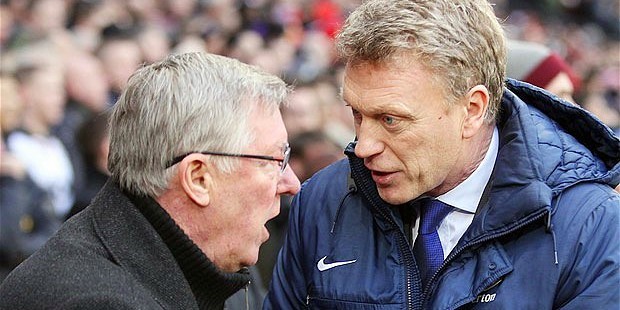Sir Alex Ferguson officially retired from Manchester United on Wednesday. In truth, he’s been planning his succession for a few years now.
From the renovated training center to the infusion of quality young players into the squad and the continuity of experience to guide through a changing era, United have slowly evolved into a club that has a system in place to help replicate the success of their greatest ever manager.
Ferguson’s successor was never going to be another Ferguson. He’s had too much time on the job and too much success for anyone to try and succeed him at the same level. The goal had always been to put in place a system, a set of tools, to help do what one man did for a quarter of a century.
David Moyes fits in the system. He brings qualities to the table that Ferguson perhaps lacked, and most importantly he wants to work in a system and not build his own and leave after a few intense years.

There’s nothing wrong with either way of working – Bayern Munich and Real Madrid chose Pep Guardiola and Jose Mourinho respectively – clubs with systems already in place bringing in managers with a proven track record to deliver instant results.
However, if Manchester United want to build a long-term, stable, winning environment that’s marked by a low player turn-over, that’s an admirable model as well (and Moyes fits in that model better than most other managers).
United haven’t done well at scouting players for the first team – despite having bought well in recent years. Moyes will change that, and you can expect player recruitment to be one of the first areas that improve under the new regime.
Of course, United have traditionally bought on character first and position / ability second – and that may be where Moyes will improve his own recruitment as well, matching his statistical analysis with the personality analysis that United use in their scouting. The results should be good.
United have also struggled – Rene Muelensteen apart – to have a truly super-star backroom staff. Moyes’ may be able to help in that area, but how much he can improve remains to be seen.
Everton under Moyes were famous for being well-prepared for their opponents (and a tad reactive). Tactically, I’ve always found Everton-United games to be fascinating to watch, mini-battles played out throughout the pitch with players adapting, countering and adapting again. Elsewhere though, Everton were not always the prettiest side to watch, and should have done better.
Tactically, Manchester United should improve, but Moyes’ challenge will be to harness United’s attacking talent and get more (or as much) out of the players as before. Of course, the flip side is that United have always been better than the sum of their parts, and with their midfield setup they have often been forced to play a certain way.
Tactics will depend on transfers, but at the very least the players will be tactically ready and maybe, just maybe, they’ll be playing for the full 90 minutes instead of sleeping in one half.
The two biggest challenges Moyes will face are player motivation (he has the personality to get respect from the players, but will they fight for him?) and public pressure (the press will pounce on any weakness that the club show – on and off the pitch).
Player motivation is something that has bothered managers with far greater trophy hauls than David Moyes, but if he can resolve that, everything should take care of itself.
So there you have it – Manchester United off the pitch have turned into a successful business operation capable of ‘winning’ without one person being responsible for everything. And now, they’re trying to do that on the pitch.
The only thing they need is for the players they have to buy into this plan – and given that most of them have been at United for a while and schooled in similar ideas by Alex Ferguson, it should not be an insurmountable challenge.
Add Sportslens to your Google News Feed!